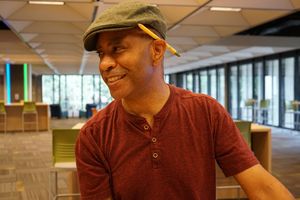I first got inspired to attempt a cross-country bicycle trip in the spring of 2020. If I had to pick a month, it was probably April 2020. A month later, the country would explode when the video of the brutal killing of George Floyd hit the news cycle. I doubt anyone reading this newsletter, whether American or a citizen of another country, does not know what happened next. A tsunami of protests hit America and many countries. Black Lives Matter became the moral mantra and a group you had to support; even if their actual stated goals had little to do with police reform. If that statement is a surprise to you, I suggest you watch this video I made reviewing their policy positions.
Every business and major corporation—whether sincerely or cynically—made their position known. Money poured into BLM’s coffers. Diversity programs at work were revamped and filled with the language of university professors. Equity, inclusion, anti-racism, white fragility were the new buzzwords of corporate America. A new commitment—again, whether or not, sincere—infected nearly every business.
The cycling industry was no exception. As I researched bikes, read blogs, and magazines, companies in the biking industry were making sure customers knew where they stood. Racial bias and exclusion had no place in the cycling world.
Three pieces of content stood out to me. Outside magazine published a cover story by Jimmy Chin about adventure inclusivity. Trek bikes had a newsletter entry titled, All In, a list of things Trek was going to fight racism in cycling.

The “All Black” square was a nice virtue signaling touch. Last, a short documentary produced by REI about pro mountain biker, Ayesha McGowan. In the film, Ayesha comments she feels like an outsider, because when she goes to mixers or parties during race events, there is seldom any hip-hop music played.
These discussions specific to the biking world are beyond troubling. They are flat out annoying and tiresome. They are misguided in the extreme.
How can I say that? Isn’t inclusion and diversity in biking or anything a good outcome? The answer is, of course, yes. The problem, however, is these efforts contain a conclusion that is false; two, in fact.
The first problem is that when corporations switch from equality to equity as a focus, I do not believe they understand the term as it is practiced in the real world. The goal of equity is not what they think it is.
Equality is treating everyone equally. All people, regardless of race, class, gender, etc, have an equal shot at the job, promotion, home loan, legal justice, etc. It is equal opportunity for all. Equality is a bike race where everyone starts at the same starting line. Equality is what Dr. King fought and ultimately died trying to achieve in America.
Dr. King did not march for special treatment. He did not march to brand white Americans for the sins of whites in the 1800s. He marched to be given an equal, fair shot.
Equity is about equal outcomes. It is about doing what is necessary to make sure everyone gets outcomes based on the color of their skin. It is having different standards for blacks and more restrictions for whites. It is the assumption that a person raised by a single mother in a trailer park should be held up in favor of the person from a two-parent home in the burbs, if those people are white and black respectfully.
Equity can never be just because it pre-proposes a conclusion about people based purely on race. The very definition of racism. Again, corporate America and small business across the country who are subscribing to equity do not realize that word does not mean what they think it means.
The second problem is all the articles that deal with this subject within the biking industry are fighting phantoms. There is no racial exclusion in biking. None.
No disrespect to the Titans of the cycling world, but we are talking about bikes here, guys. Just bikes, not the exclusive, wealthy golf club. This is not wall street jobs, or NFL coaching positions.
If a black person wants to get involved in cycling, all they have to do is buy a bike. They can find one in every big box retail store in America. They can find cheaper ones on Amazon. They can find one at the pawnshop or Facebook Marketplace cheaper than the basketball shoes they wear playing hoops.
The only sports with a lower barrier to entry are running and walking. Okay, perhaps basketball too, if you do not count the Air Jordans. There are no gatekeepers in the bike world. Get a bike, start riding. Pretty simple.
Just because there are not a lot of black people involved in cycling, be it mountain bikes, touring, street racing is not because of racism or bias. It is because the black demographic are not interested in cycling. Everyone who looks at sports demos knows black Americans gravitate toward football, basketball, and track. Next on the list is baseball and soccer. But the more obscure the sport, the fewer blacks are involved. Sure, sports like golf, and tennis have more blacks taking part than in the 80s and 90s, but even that is a small percentage.
In 2019, the Outdoor Foundation published a study on the outdoor recreation industry. In this report, 10.4% of African-Americans were involved in biking activities like road cycling, mountain biking, or bmx. The vast majority of that time was spent riding less than 10 miles each ride. African-Americans love a good bike as much as the next guy, but we do not see cycling as anything other than something to do once in a while.
That’s a matter of taste, not racial bias.
As a child, I raced BMX bikes. When I went to the track, I was usually one of only two or three black kids. Not because anyone was trying to keep me from racing. I showed up, paid my entry fee, and was told good luck. My neighborhood black friends were home playing basketball or playing football. They chose to be elsewhere.
If Trek or any other bike maker wants to get the percentage of blacks interested and taking part in cycling higher, go for it. It’s an untapped demo that can raise the sales and profits of bike makers. But, you increase the numbers by getting black people and kids interested in the sport, not through half-cocked social justice outreaches.
Do not talk about racial bias. Do not even make that a focus. Go to a neighborhood with some bikes and show what black kids can do on them. Put together a program that gets minority kids-who mostly live in urban areas—out of the city and into woods with mountain bikes. Mountain biking as a sport is becoming a thing in high schools across America, sponsor a mountain biking team at an inner city school. Meet the demographic where they are and sell them on the sport and how cool it is. Because it is freakin cool!
But for the love of God, cut out the inclusion nonsense. Treat everyone great and focus on the fun of the sport and diversity takes care of itself. When blacks see the sport of cycling the same way they do tennis, golf, baseball, or track, then there will be more blacks involved.
This is the way to more inclusion. Companies, industry publications, and advocates for outdoor sports can talk and spend money on inclusion and diversity programs till they are blue in the face. It won’t make a bit of difference if there is just no interest. Do not take away or ignore the agency of blacks or any other minority. They are choosing their interests. Show them a more fun and exciting choice and they will come to you.




